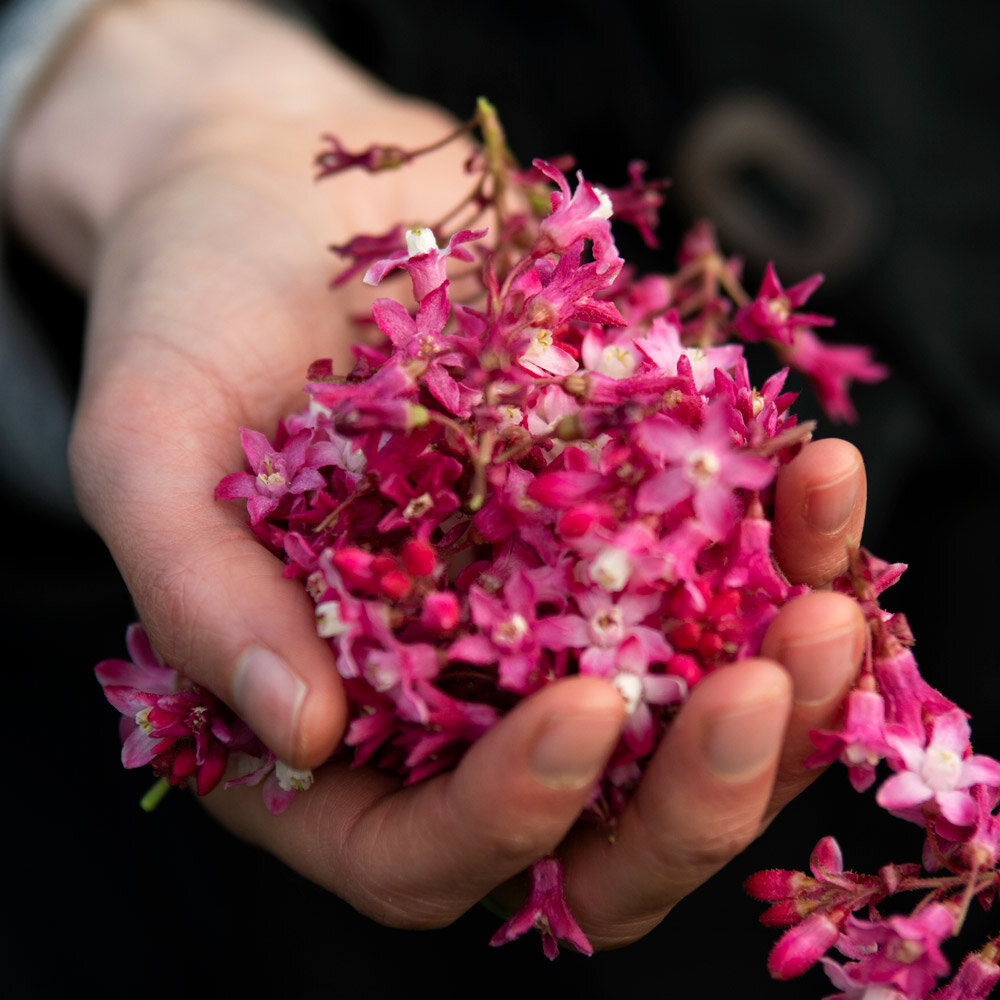Wild Herbal Vinegar
Vinegars are a nice way to capture and preserve the flavours of the herbs and wild blooms of spring. Vinegars are considered sour, warm and moving in TCM food energetics. Sour foods affect the liver, and move stagnant energy in the body. Herbal infused vinegars are a nice supplement to help the body attune to spring after a winter of heavy foods.
While most clear vinegars infuse beautifully with herbs, I prefer to use unpasteurized vinegars, for their added digestive benefits. I would only advise against using white household vinegar, as the acidity its too overpowering for more delicate tasting herbs.
Types of vinegar:
Apple cider vinegar
Umeboshi vinegar
Rice or white wine vinegar
Coconut vinegar
Herbs and blooms:
Plum and cherry blossoms
Maple blossoms (pictured)
Flowering currants (pictured)
Nettle
Dandelion greens & blossoms
Rosemary, thyme, sage, basil
Ingredients
2 cups apple cider vinegar
1 cup of fresh plant material, or half a cup of dry
Herbal Vinegar
Make sure the glass containers that you are going to use are clean and dry.
If you have foraged the herbs, leave them in an open paper bag for 24 hours to allow any insects time to crawl out.
Put the herbs in the container, cover with apple cider vinegar, and close the container.
Shake the container occasionally, and insure that the herbs are always covered by vinegar.
Taste the vinegar after one week. At this point, you can strain the herbs or keep infusing for up to one month. Use cheesecloth, or a coffee filter to strain the herbs. You don’t want to have any remaining plant material, as that could cause spoilage.**
Store the vinegar at room temperature, and out of direct sunlight.
Unopened, the vinegar will last one to two years. Once opened, use the vinegar within 6 months.
**save the vinegar soaked herbs to use in salad dressings, stir fry, or to top salads.

